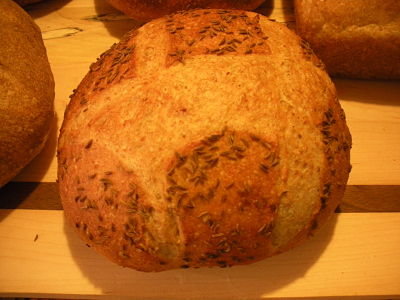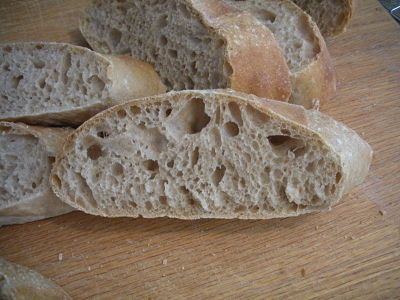ChugachBrewing
Well-Known Member
I'll second the tartine method (as I have previously).
It also works without the folding as well. The last bread I posted above I did not fold once until it was time to shape. I feel the shaping is the most critical step.
It also works without the folding as well. The last bread I posted above I did not fold once until it was time to shape. I feel the shaping is the most critical step.











